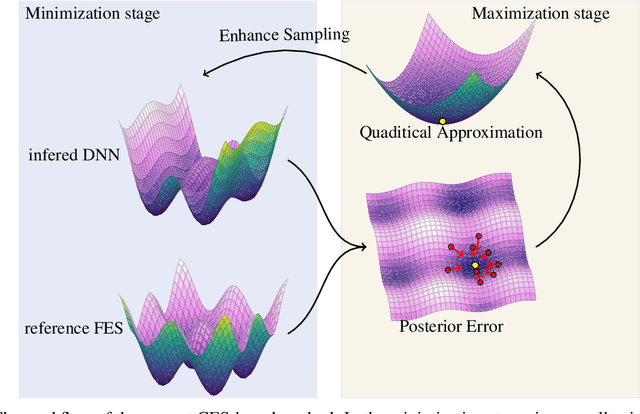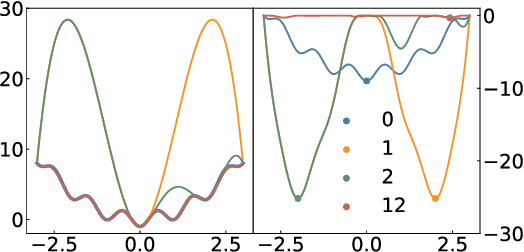Consensus-based construction of high-dimensional free energy surface
Paper and Code
Nov 30, 2023



One essential problem in quantifying the collective behaviors of molecular systems lies in the accurate construction of free energy surfaces (FESs). The main challenges arise from the prevalence of energy barriers and the high dimensionality. Existing approaches are often based on sophisticated enhanced sampling methods to establish efficient exploration of the full-phase space. On the other hand, the collection of optimal sample points for the numerical approximation of FESs remains largely under-explored, where the discretization error could become dominant for systems with a large number of collective variables (CVs). We propose a consensus sampling-based approach by reformulating the construction as a minimax problem which simultaneously optimizes the function representation and the training set. In particular, the maximization step establishes a stochastic interacting particle system to achieve the adaptive sampling of the max-residue regime by modulating the exploitation of the Laplace approximation of the current loss function and the exploration of the uncharted phase space; the minimization step updates the FES approximation with the new training set. By iteratively solving the minimax problem, the present method essentially achieves an adversarial learning of the FESs with unified tasks for both phase space exploration and posterior error-enhanced sampling. We demonstrate the method by constructing the FESs of molecular systems with a number of CVs up to 30.
 Add to Chrome
Add to Chrome Add to Firefox
Add to Firefox Add to Edge
Add to Edge